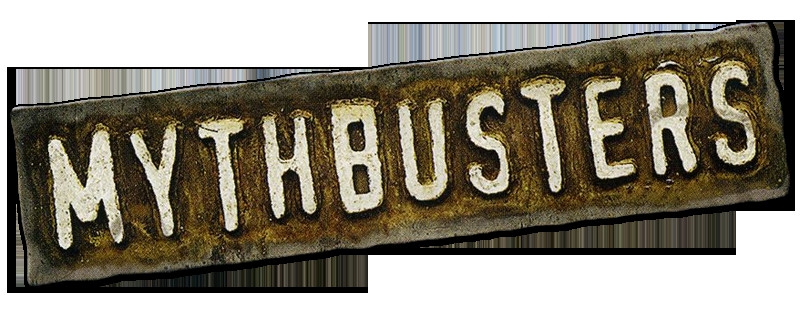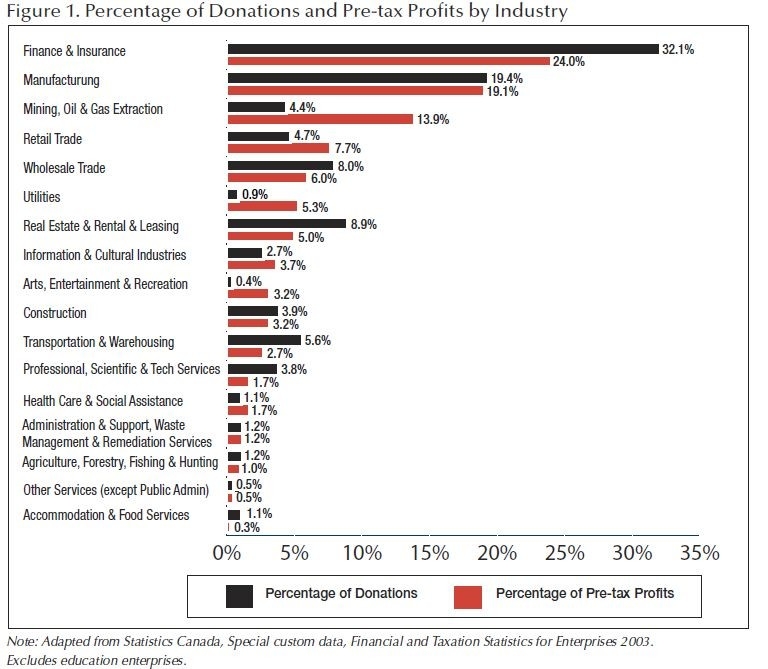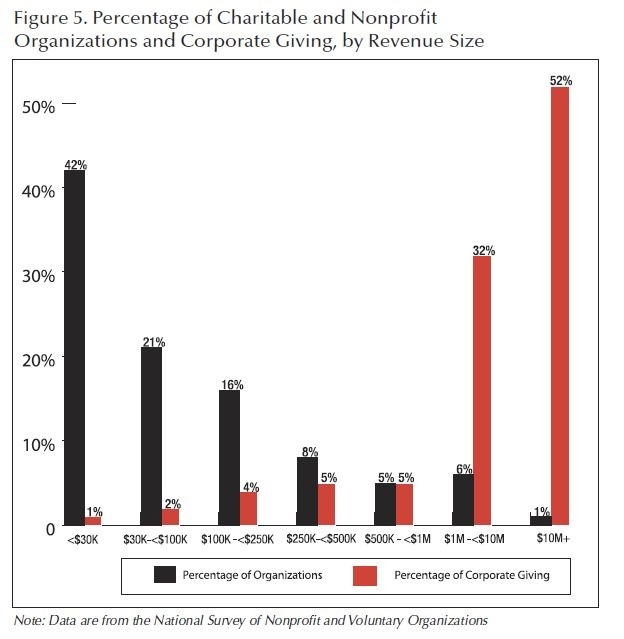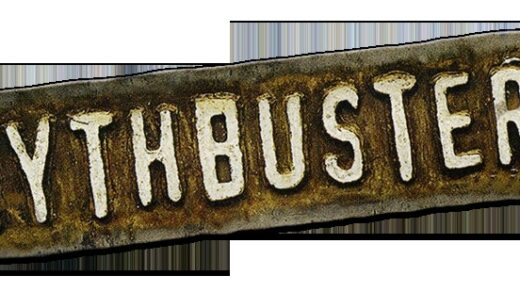
Most donors are businesses.

This is a pretty big falsehood. But let me clarify by defining (in my mind) what a business is (or isn’t) — it is not an owner of a privately-owned company (who may choose to donate corporately for either tax purposes or recognition purposes). Rather, I define it as the large corporations that do not have a single owner (like a bank or telecom company).
Businesses are in business to make money. Full stop. Businesses have a duty to their shareholders to provide the most amount of value for the company. Many businesses adopt the philosophy that they would be happier to have a higher dividend and let the individual shareholders then choose to make a personal donation from those proceeds to the charity of their choice rather than the corporate donation at the top line and a lower dividend.
Furthermore, if businesses choose to donate, they need to strategically align with charities if the donation is to make sense (other than being good corporate citizens). There is a reason that Crayola sponsored a bunch of daycares in the States — their missions align nicely. I would doubt that Crayola’s mission would neatly align with a pet shelter. Conversely, I would doubt that Purina Pet Food would donate to a daycare but would support a pet shelter. Missions need to align.
An additional definition is also needed here. That is the word “donor”. Donors are different than sponsors. Sometimes the funds come from different corporate budget lines (where sponsorship is viewed as marketing — and quite rightly so).

As you can see from the table above, it is the Finance and Insurance businesses that are the single largest business contributors. (Think of the banks — they are our steadfast friends and tend to support all of our endeavors.)

The table above solidifies the notion that there is a larger wealth gap (as was mentioned in one of my earlier articles). The businesses at the $10M+ level represent only 1% of businesses but account for over half of the corporate donations.
So, in conclusion, when faced with this myth, I usually spend some time defining what constitutes a business (a sole proprietor, I argue, is not corporate donor — it may be the vehicle that they wish to donate through, however.)
It’s hard to believe but this is the last of the Top 10 Myths.
Stay tuned for a new topic next week.
L’chaim,
jack




